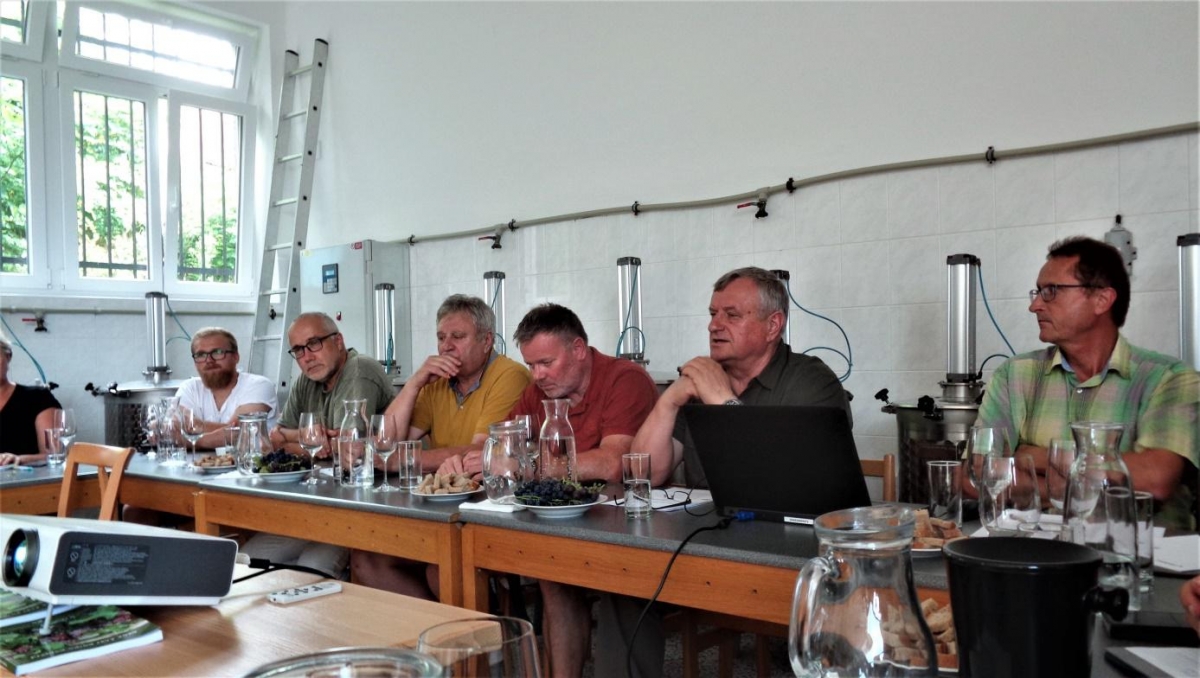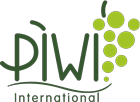Jiri Sedlo
ÚKZÚZ (Central Institute for Supervision and Testing in Agriculture), in particular the Director of the Crop Production Department DI Jiří Urban, organized a conference on PIWI grape varieties in the Czech Republic on August 16, 2021 followed by a tasting, to which he attended over thirty people invited. Winemakers who presented their own PIWI wine tastings also took part in the meeting and tasting. Most of the samples presented came from the cellar of the ÚKZÚZ and from the Vinselekt Michlovský company. The meeting was initiated by a lecture by Doz. Miloš Michlovský, dr. hc, who presented the recent history, present and possible future of the breeding of PIWI varieties, which previously took place in Resistant Velké Bílovice and later in Vinselekt Michlovský.
The specialist lecture was very interesting for the participants and the discussion about the future of interspecific grape varieties in the Czech Republic was very lively. Active participants included Dr. Václav Hlaváček, Vice President of the Chamber of Agriculture of the Czech Republic and Chairman of the South Moravian Chamber of Agriculture, as well as Chairman of the Supervisory Board of the Viticulture Association of the Czech Republic, Member of the Board of PIWI International and Chairman of PIWI CZ DI František Mádl, Vice President of PIWI International Dr. Jiří Sedlo, director of the Valtice Higher Viticulture School DI Tomáš Javůrek, Prof. Dr. Pavel Pavloušek, from the Institute of Viticulture and Oenology of the Mendel University in Brno, Director of Znovín Znojmo, AG DI Pavel Vajčner, emeritus director ÚKZÚZ Dr. Jaroslav Staňa, and many others. A total of about 40 wine tastings were presented.
After a lengthy discussion, the participants came to the following conclusions:
- The Czech Republic has a long tradition of breeding varieties, the origins of which can be traced back to the founder of genetics, GJ Mendel.
-
For the further development of viticulture in the Czech Republic, it is necessary to support new, already approved varieties that are more resistant to fungal diseases, above all by promoting their cultivation, but also by selling the wines made from them. This is in line with the goals that the EU has set for the future. With conventional varieties, the CO2 footprint of the wine will always be higher, regardless of the pesticide residues, and the quality of the organic wine will only be comparable with the new PIWI varieties. Compared to most agricultural crops, the vines are ready for greening thanks to more resistant varieties, but it is necessary to encourage the exchange of some varieties. The proportion of PIWI varieties in the vineyards of the Czech Republic (4.1 %) is one of the highest in Europe.
-
The support for PIWI varieties should be seen as "jump-start" in the early years of the EU's new Common Agricultural Policy (CAP). Once the benefits of these new varieties are proven and their wines have established themselves in the market, they will no longer be needed because the PIWI varieties will then be competitive.
-
This support should also be introduced for other crops within the framework of the new CAP (Common Agricultural Policy of the EU), outside the budgets of the existing CMO (EU Common Market Organization), for individual agricultural products. This means that farmers are entitled to support under clear EU-wide rules, outside the CMO but within the CAP as an additional cost for the introduction of the new CAP, in return for the restriction of farmers to organic farming.
The Ministry of Agriculture as well as the European Commission and the European Parliament should be asked to achieve these goals as soon as possible.
Further information on the PIWI varieties: Ing.Fantišek Mádl, fmadl1917@gmail.com,
https://piwi-international.org/
Photo: Část účastníků jednání



